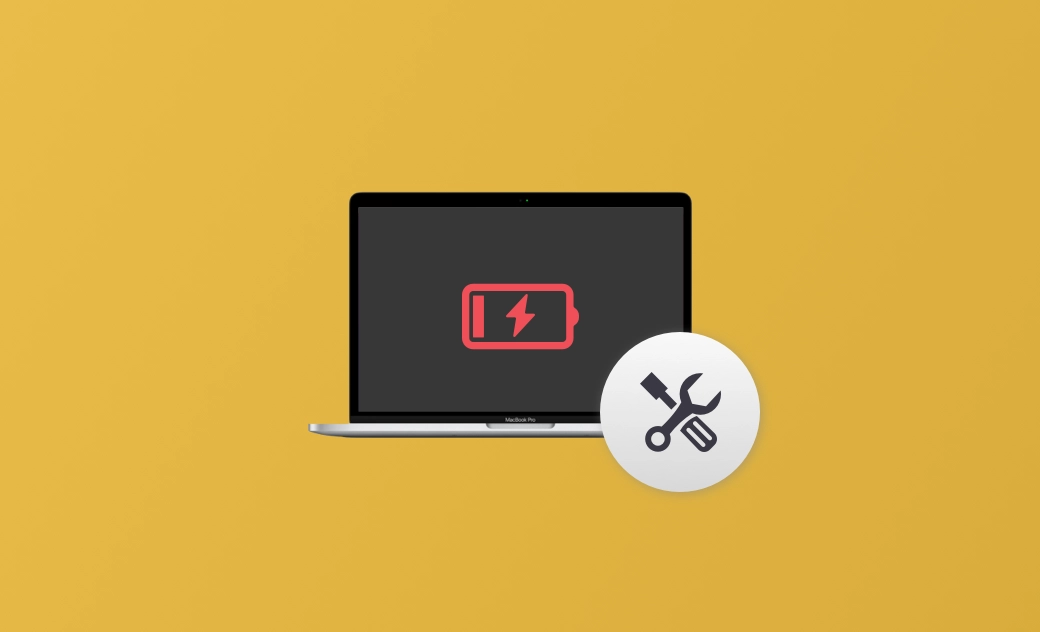MacBook Not Charging after Tahoe Update? 10 Quick Fixes!
A MacBook not charging after the Sequoia update can be frustrating. But don't worry! In this post, you will find 10 effective solutions. Just keep reading!
Why Is My MacBook Not Charging After Sequoia Update?
Understanding the causes of why your MacBook won't charge is vital. There are many reasons why your MacBook Air/MacBook Pro won't charge. Common causes include:
- The charging cable is not connected or damaged.
- Battery-draining software.
- Hardware issues.
- The charging port is clogged with dust, debris, etc.
- Poor battery health.
- Overheating environment.
How to Fix "MacBook Not Charging After Tahoe Update"
Check if your Mac meets any of the above conditions. If it does, follow the corresponding solution below. Here are 10 ways to fix the MacBook not charging issue:
1. Check Your MacBook Battery Health
Check your MacBook battery health to determine if battery issues are the main reason your MacBook isn't charging.
Open System Settings>Battery. Monitoring your MacBook battery health regularly helps maintain optimal battery performance.
2. Replace or Service the Battery
Over time, Mac batteries lose effectiveness. Click the battery icon in the Menu Bar. If your battery health is poor, the Battery Menu will show Service Recommended. Follow the instructions provided.
3. Turn Off Battery Health Features
If Optimized Battery Charging is enabled, it’s normal for your Mac to stop charging before reaching 100% to extend battery lifespan. You can temporarily turn off battery health features in Battery Settings or click Charge to Full Now in the Battery Menu.
Check if Optimized Battery Charging is enabled:
- Open System Settings>Battery.
- Click the Info button next to your Battery Health.
It’s generally recommended to keep Optimized Battery Charging on to maintain better battery performance and reduce battery aging.
4. Reboot Your Mac
Restarting your Mac can fix occasional system issues. If your Mac isn’t charging, it could be due to an overloaded system—for example, too many running apps or low storage.
After restarting, perform a thorough cleanup. Regularly cleaning your Mac improves efficiency and reduces system errors.
BuhoCleaner is a reliable Mac cleaner that quickly removes junk files, large files, duplicate photos, and more. It also monitors your Mac’s performance.
5. Check the Charging Port for Dust and Debris
A dirty charging port can prevent your Mac from charging. Disconnect cables, clean the port, and reconnect. If this doesn’t help, proceed to the next solution.
6. Check the Charging Cable
Frequent use can wear out charging cables. Inspect your cable for fraying or holes. If damaged, replace it with a new one.
7. Cool Down Your Mac
Macs operate best at 50℉ to 95℉ (10℃ to 35℃). Avoid covering your Mac or placing it on thick surfaces that can trigger overheating. Move it to a cool, well-ventilated spot, then try charging again.
8. Check and Close Battery-Draining Apps
High-energy apps can prevent your Mac from charging effectively. Click the battery icon in the Menu Bar>Battery Menu and close apps using significant energy.
9. Reset the SMC
The System Management Controller (SMC) manages power on your Mac. Resetting it can resolve uncommon power or thermal management issues. On Macs with Apple silicon, simply reboot. On Intel-based Macs, follow the Apple detailed tutorial.
10. Check if Your Mac Has Been Recalled
If none of the above methods work, check if your MacBook is eligible for the 15-inch MacBook Pro Battery Recall Program.
A limited number of older 15-inch MacBook Pros (sold between September 2015 and February 2017) may have batteries that overheat and pose fire risks. Check your Mac serial number to see if it’s affected.
Other solutions include checking the power outlet, updating software and firmware, trying a different adapter, checking for line noise, leaving it plugged in longer, or running Apple diagnostics.
If your MacBook hasn’t been used for a long time, it may require extended charging to regain normal operation.
Conclusion
This post introduced 10 practical solutions to fix the MacBook not charging issue. At least one of these methods should help you recharge your Mac normally again!
Clare has been captivated by the world of Apple products since the launch of the iconic iPhone in 2007. With a wealth of experience, Clare is your go-to source for iPhone, iPad, Mac, and all things Apple.
